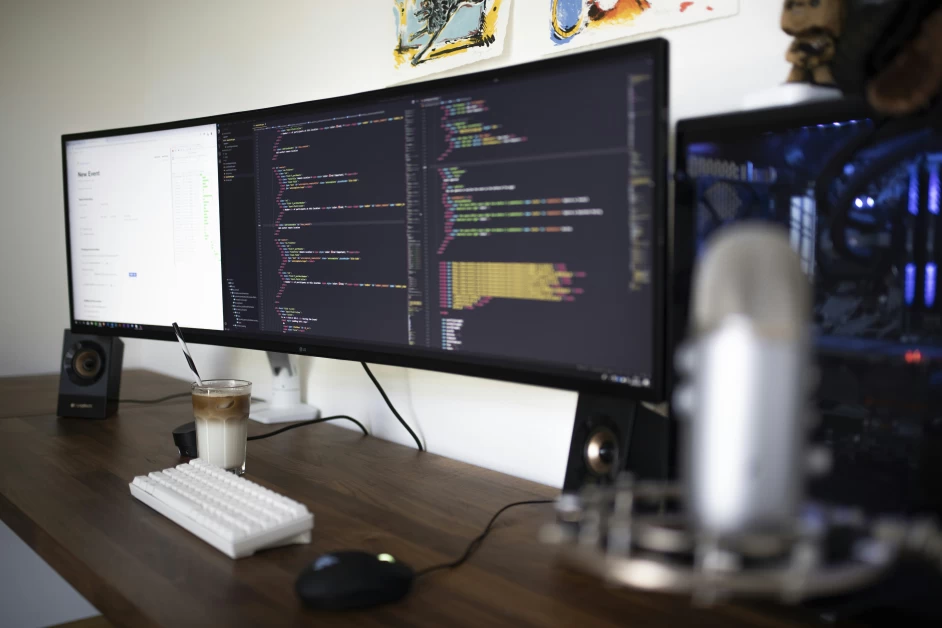Table of Contents
Introduction
For those who are interested in mobile app development but have no coding experience, there are programming languages and frameworks that can help you get started. In this article, we will discuss the most commonly used programming languages for app building and the skills required to deal with app coding. We will also explore different types of apps, such as native, hybrid, and web apps, and the programming languages suitable for each type.
Building a Native App
Native apps are specifically developed for a particular platform, such as iOS (Apple) or Android, and are distributed exclusively on the respective app stores. Let’s explore the programming languages commonly used for native app development on each platform.
Developing an iOS App for iPhone
The most common programming language used for iOS app development is Objective-C. Objective-C is a subset of C with added objects and has been around for quite some time. However, it can be complex for beginners who have no prior programming experience. To address this, Apple has developed another programming language called Swift.
Swift is a more modern and easier-to-learn programming language compared to Objective-C. It offers similar functionality and performance while being more beginner-friendly. Many mobile apps are now developed using Swift due to its ease of use and improved performance.
To develop iOS apps, you need Xcode, Apple’s compiler for iOS. However, Xcode is only available for macOS, which means you need a Mac to compile iOS apps. Additionally, to publish your app on the App Store, you need to pay a yearly fee of 99 euros. If you stop paying, your developer account will be blocked.
Developing an Android App
When it comes to developing Android apps, there are several programming languages available, supported by Google. Let’s explore some of the popular programming languages for Android app development.
Java
Java is the most popular programming language for Android app development. It offers seamless integration with Google’s development environment and supports the use of the Eclipse IDE. Java’s simple syntax and comprehensive framework make it a popular choice among developers. Additionally, Java apps have faster launch times as the binary code is generated only once and not every time it is invoked.
Kotlin
Kotlin is another programming language supported by Google for Android app development. At the latest I/O Developer Conference, Google announced the full integration of Kotlin into Android Studio. Kotlin is compatible with Java, allowing easy integration and use of Java code in Kotlin projects. Kotlin is gaining popularity among developers, although code examples and references are still relatively scarce compared to Java.
C and C++
C++ is suitable for developers who want more control and want to be closer to the hardware. It is also supported by Android Studio but requires the integration of external components. C++ is primarily used for specific functionality where maximum control is required, while the majority of the development is done using higher-level languages like Java and Kotlin.
C# in Xamarin
Xamarin is a framework that allows the use of C# with Visual Studio for mobile application development. It provides the necessary integration of various Xamarin libraries, making the programming experience similar to Java. Java, Kotlin, and C# are all suitable for efficient Android development.
Creating a PWA (Progressive Web App)
A Progressive Web App (PWA) is a web app that uses modern web capabilities to deliver an app-like experience to users. PWAs can be accessed through a web browser and do not require installation from an app store. Let’s explore the programming languages commonly used for PWA development.
HTML, CSS, and JavaScript
To develop a PWA, you need to have a strong understanding of HTML, CSS, and JavaScript. HTML is used to structure the content of the app, CSS is used for styling and layout, and JavaScript is used for interactivity and functionality. These three languages are the building blocks of web development and are essential for creating PWAs.
Frameworks and Libraries
There are various frameworks and libraries available that can simplify PWA development. Some popular frameworks include React, Angular, and Vue.js. These frameworks provide additional functionality and tools to enhance the development process and make it easier for developers with no coding experience.
Conclusion
In conclusion, there are programming languages and frameworks available for app development, even for those with no coding experience. For native app development, Objective-C and Swift are commonly used for iOS, while Java, Kotlin, C, C++, and C# are popular choices for Android. For PWA development, HTML, CSS, and JavaScript are the foundational languages, with additional frameworks and libraries available to simplify the process. By learning these languages and frameworks, you can start building your own apps with no coding experience.
Remember, practice and hands-on experience are crucial for mastering app development. Start small, experiment, and gradually build your skills. With dedication and perseverance, you can become a proficient app developer, regardless of your coding background.
Sources:
https://www.scrollreads.com/







